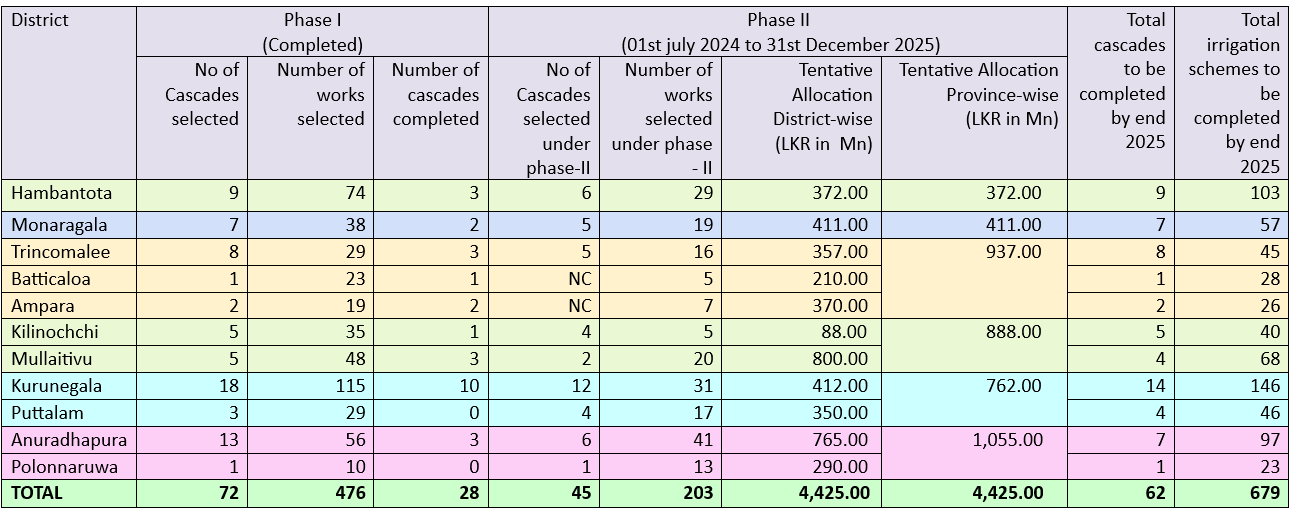

Tank cascade systems are remarkable and one of the most efficient water management systems in the world. In ancient times, these systems functioned sustainably, in harmony with the environment, and were maintained by the communities that benefitted from them. The Climate Smart Irrigated Agriculture Project(CSIAP) funded by the World Bank-funded brings together various disciplines, sectors, and stakeholders to address the complex challenges facing the agricultural and irrigation sector in Sri Lanka and promote more sustainable, resilient agricultural and water management practices. The CSIAP improves access to irrigation for smallholder farmers in climatically vulnerable hotspot areas of Sri Lanka through the rehabilitation of tanks and cascade systems. This helps to improve water management and reduce the negative impacts of irrigation on the environment. By promoting more efficient and sustainable use of water resources, the CSIAP contributes to the resilience of mother earth by reducing the negative impacts of water use on ecosystems and promoting more sustainable use of water resources. The CSIAP Takes initiatives to rehabilitate irrigation systems based on plans derived from hydrologic modelling accounting for projected climate change in the project areas.
The following table explains the ongoing tank rehabilitation and cascade development in climatically vulnerable hotspot areas in Sri Lanka.

The CSIAP is rehabilitating and developing the different types of tanks in a cascade with different functions (forest tanks, tanks for water purification/ silt trapping, tanks for seasonal cultivation with no permanent settlements, and village tanks). Tank ecosystems create a mild microclimate that supports a variety of flora and fauna that otherwise would not have inhabited the climatically vulnerable hotspot areas. The long-term sustainability of tank cascades depends on the holistic understanding of socio-ecological aspects and requires a multidisciplinary and multi-stakeholder approach. In this way, the CSIAP is establishing the Cascade Management Committees (CMCs) with the relevant stakeholders in climatically vulnerable hotspot areas in Sri Lanka to restore and improve the watershed system through integrated management and manage water and associated natural resources in a sustainable manner to enhance the living standards of rural communities.
The CSIAP has conducted sufficient cascade-wise technical studies required before rehabilitation work. Cascades-based approaches are helping sustainable agroecological landscapes, cascade-based climate adaptation, and cascade-based disaster risk reduction. In this project, the CSIAP implemented a cascade-based approach for tank rehabilitation and cascade development, while blending the scientific results with traditional indigenous knowledge and practices. The CSIAP successfully brought back the community lead maintenance and management of tanks, without losing the vital contribution made by the stakeholder agencies. The achievements of the project will be highly significant. Key lessons learned from the CSIAP can be used about cascades in climatically vulnerable hotspot areas on how to empower communities with the means and knowledge to embrace their heritage and environment and become self-sufficient.
